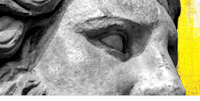 |
| Knedlikova blog |
The public generally could not give a toss about archeology, so called knowledge theft or even metal detecting, let alone feeling resentful about any of them. They are far too busy talking about Strictly, Ant n’ Dec or why we should be allowed to crash out of Europe. One in a thousand may have heard of the PAS but far fewer would know what it does… or doesnt do. They dont care if thousands of coins are sold on Ebay, or whether a motorway is ran (sic) through the middle of Stonehenge or if Archies and detectorists fight it out on social media of a Saturday evening. They dont care if we are right or whether you are right, it simply doesnt register on their list of important subjects. The phrase that matters to them most is not (nor ever will be) “mass knowledge theft”, it is “do you want fries with that?” That is why you have 10,000 followers of this blog, not 10,000,000. You dont matter to the vast majority of the public, i dont matter to them either and the PAS keeping facts from them doesnt even register on their top 10,000,000 reasons for feeling resentful. Britain is probably a worse place because of this, but sadly they wouldnt even notice.Conservation is not a matter for the present generation of mass Ant n' Dec gawpers and Brexitly-blind Brits. Many of these folk would perhaps even be quite happy to see every inch of brownfield archaeology bulldozed and built over. Conservation is however what people with a conscience think is what we owe to future generations, trusting that not all of them will turn out to be culture-blind Yahoos. Probably very few in seventeenth century Europe, even among the educated classes, were all that bothered about the fate of Raphus cucullatus an extinct flightless bird that was once endemic to the island of Mauritius. The world however is all the poorer because they could not see beyond the ex tempore here and now. taking the right steps at the right time might have saved the dodo - but there was nobody there to do that, so all we have is a few bits of dead birds that collectors collected, did they "save the dodo"?
One reason why Collection-driven exploitation of the archaeological record is not seen as an environmental issue is that this is not the way it is being presented by the mainstream archaeological community - with their own fixation on 'discovery' (of lots of nice goodies to be looked at and written about) rather than the conservation of the resource that is destroyed by collectors hoiking them out.
But look at what Mr Horn is doing, he's establishing himself as among the 'caring' elite, those that care about the past that is abandoned by the generally-plebian Brits. He presents himself as superior to the gawpers and hoi polloi. This is the 'Good Collector' Model - "they don't care, so what 'metal detectorists' are dong is saving the past".

































